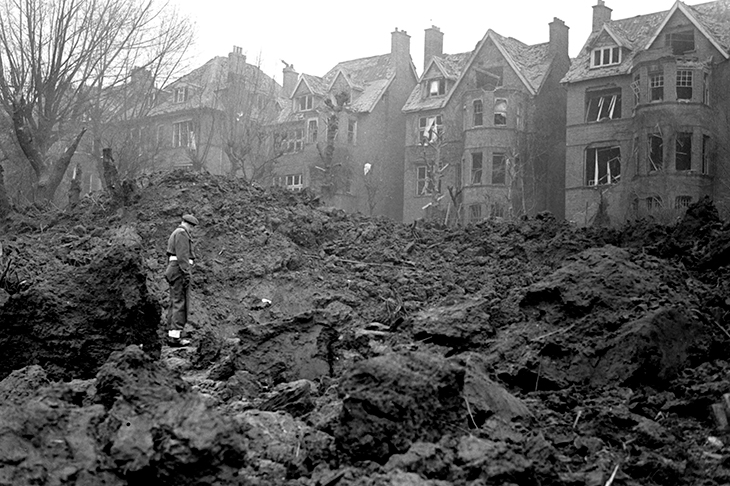Lissa Evans has been single-handedly rescuing the Hampstead novel from its reputation of being preoccupied by pretension and middle-class morality. Her original black comedy (Crooked Heart) concerned Vee, a middle-aged suburban scammer, and the prodigiously bright but orphaned Noel, who join forces in north London’s urban village during the second world war. Evans then went back in time to tell the story of Noel’s Suffragist godmother Mattie founding a disastrous girls’ club on Hampstead Heath during the 1930s (Old Baggage). In V for Victory, the story moves forward again.
It’s 1944, and Hitler’s rockets are falling all over London. Mattie is dead. Vee is pretending to be Noel’s aunt and running an eccentric boarding-house in Mattie’s Hampstead home (left to Noel). One of Mattie’s former pupils, Winnie, is now an air raid warden, pulling civilians from bombed-out buildings. Winnie’s rich, pretty twin Avril has just penned a lubricious but well-received novel of a kind that sounds ominously familiar. Noel, the eternal outsider, is being home-schooled by lodgers, and life has achieved a perilous peace. Then Vee witnesses a road accident and finds herself in court. Her life of lies with Noel is suddenly endangered.
As before, the plot is relatively slight. What keeps you reading is what made Evans a successful scriptwriter for the film (from her novel) Their Finest: her remarkably vivid recreation of British life during the war, and her characters. From Vee and Noel to the most incidental civilians, these are given a pathos and vitality that made me laugh aloud. Vee’s dishonesty is not the kind that makes you root for Highsmith’s Ripley. It is impulsive, sympathetic and brave, as a means of saving both an awkward child and her own self-respect during a time of chaos, crime and mortal peril.
There is a predictable escape from a bomb, quiet heroism and bad behaviour. Her characters, almost all marginalised, bristle with intelligence, and too much of this can be annoying. Noel is not just a walking encyclopaedia teaching himself geography and history, and a first-rate cook, he even speaks Polish. Nevertheless, he engages, though not quite as much as the bullied local journalist Jepson or Winnie do. When our hero finally discovers who both his parents are, it leaves the reader happy at the end of a delightful novel but wondering how long he and Vee will have to enjoy the ordinary life before it is populated by the likes of Avril.






Comments